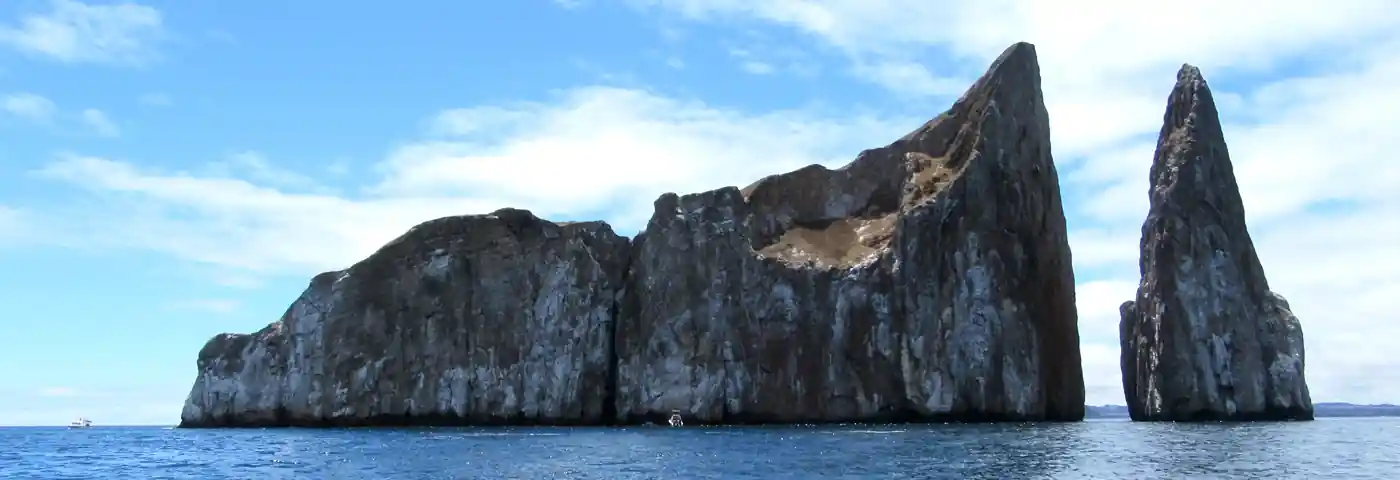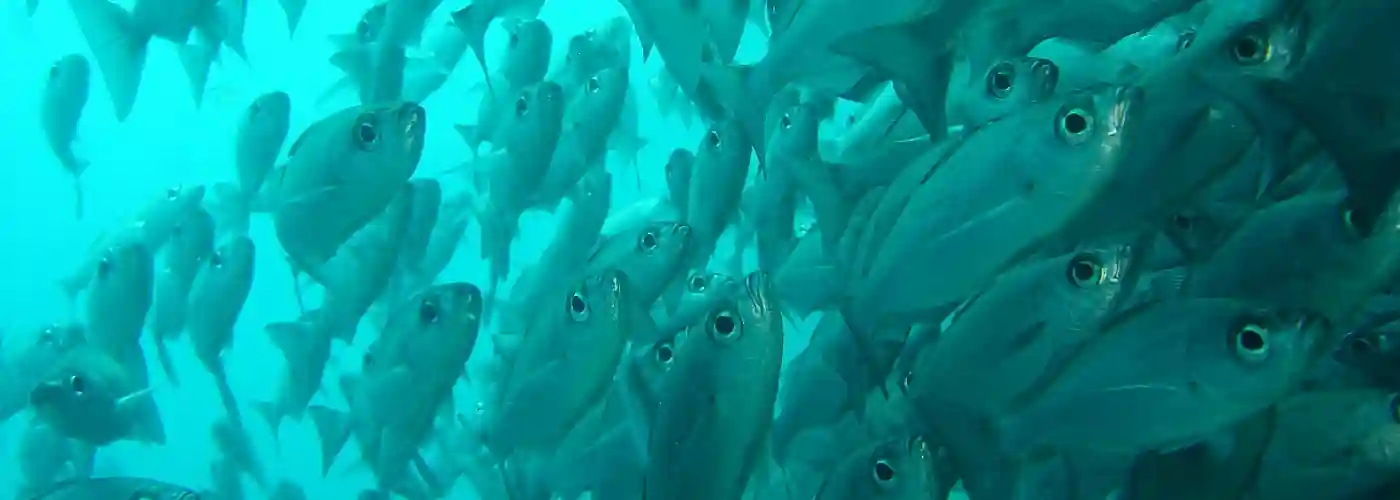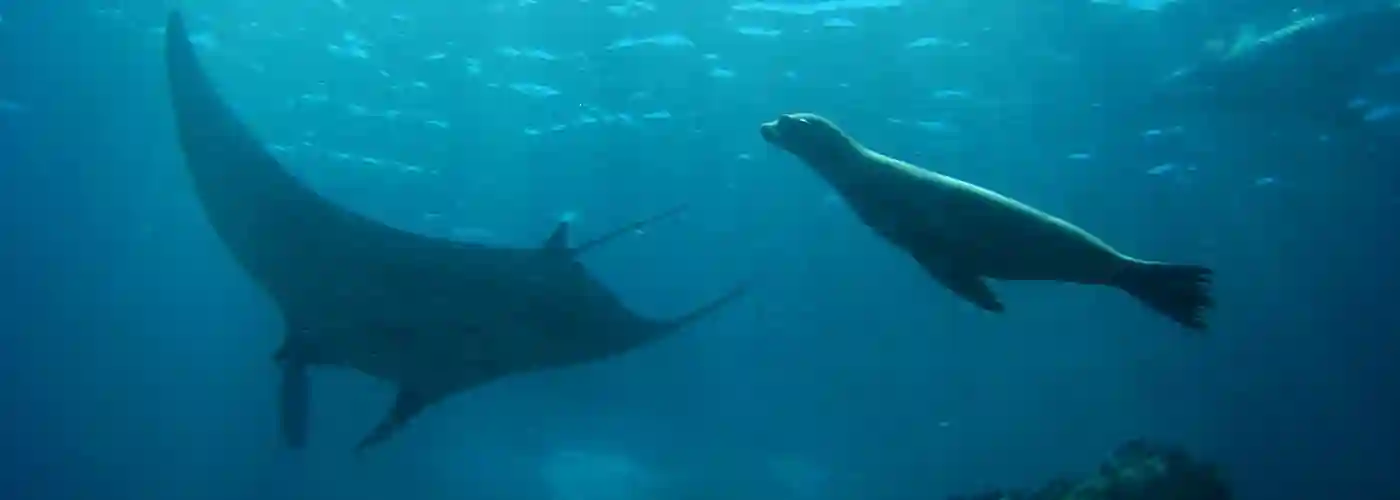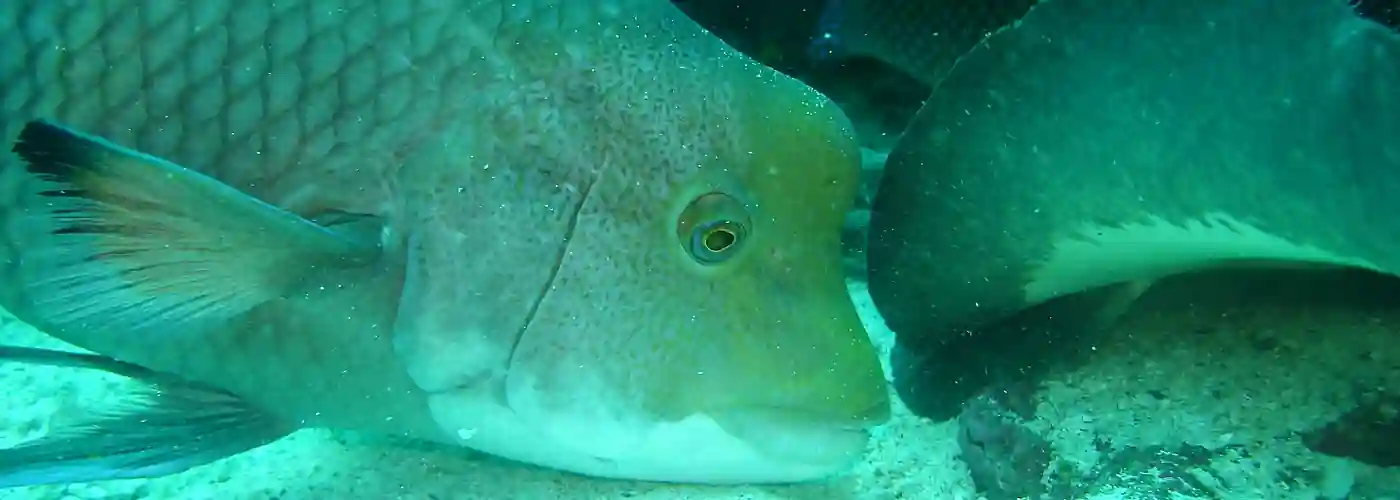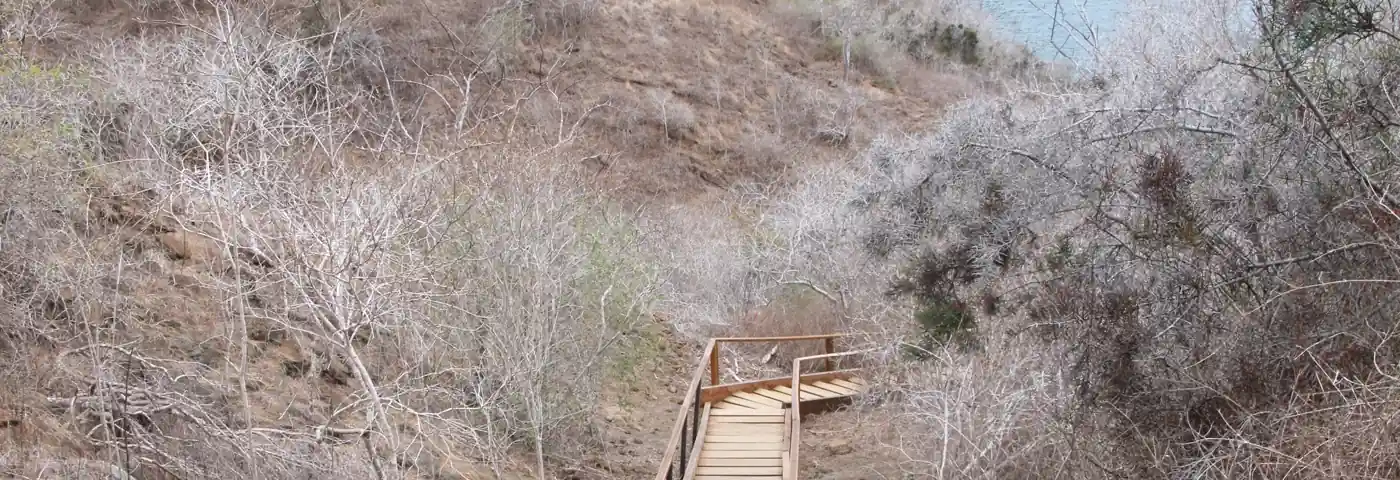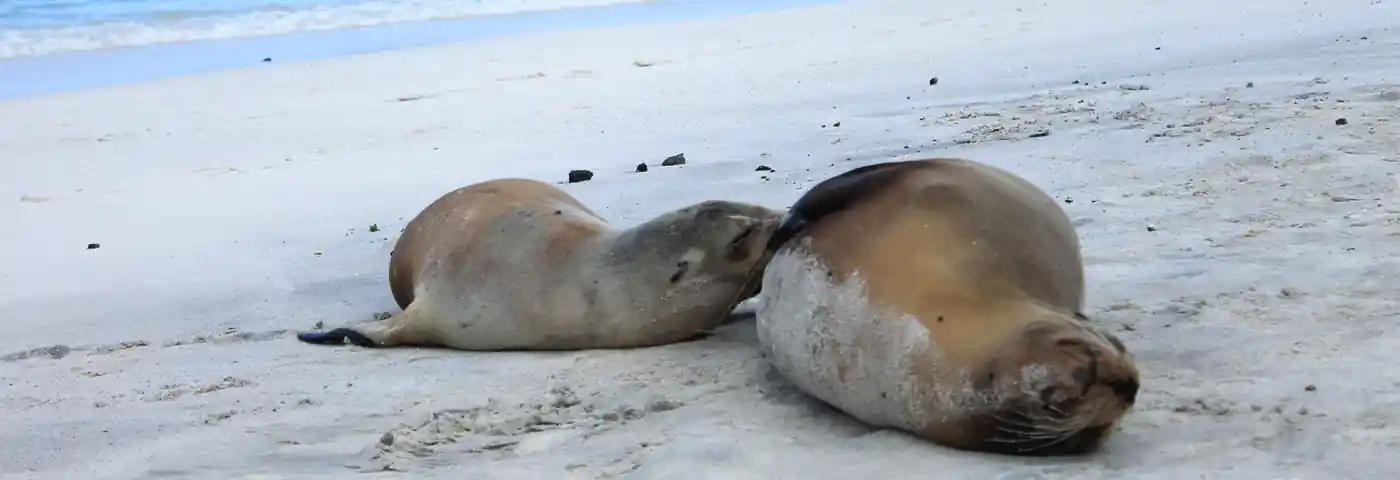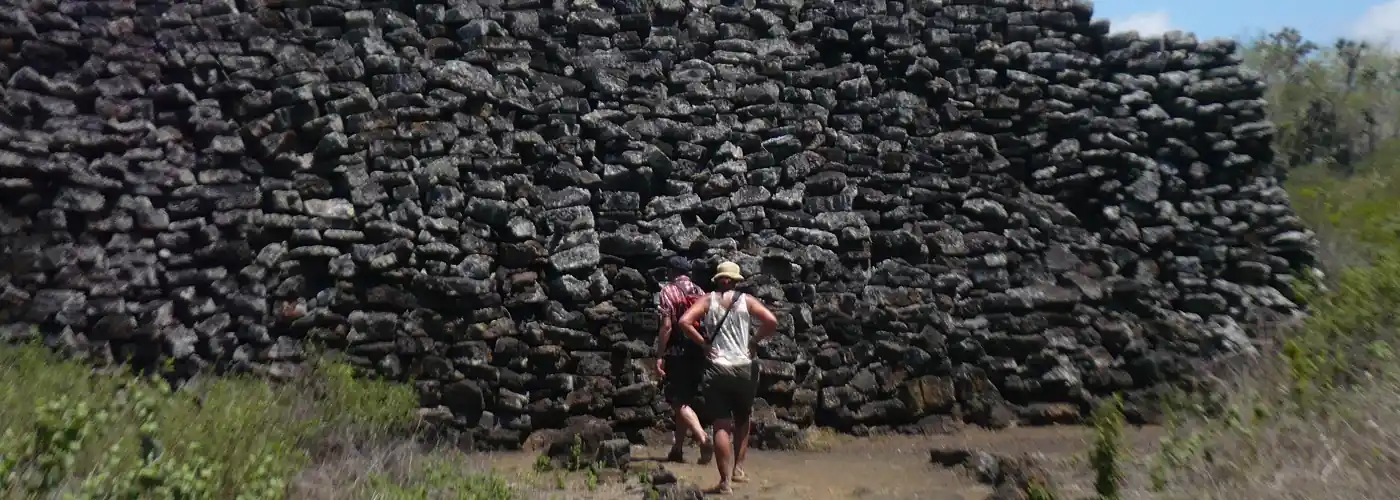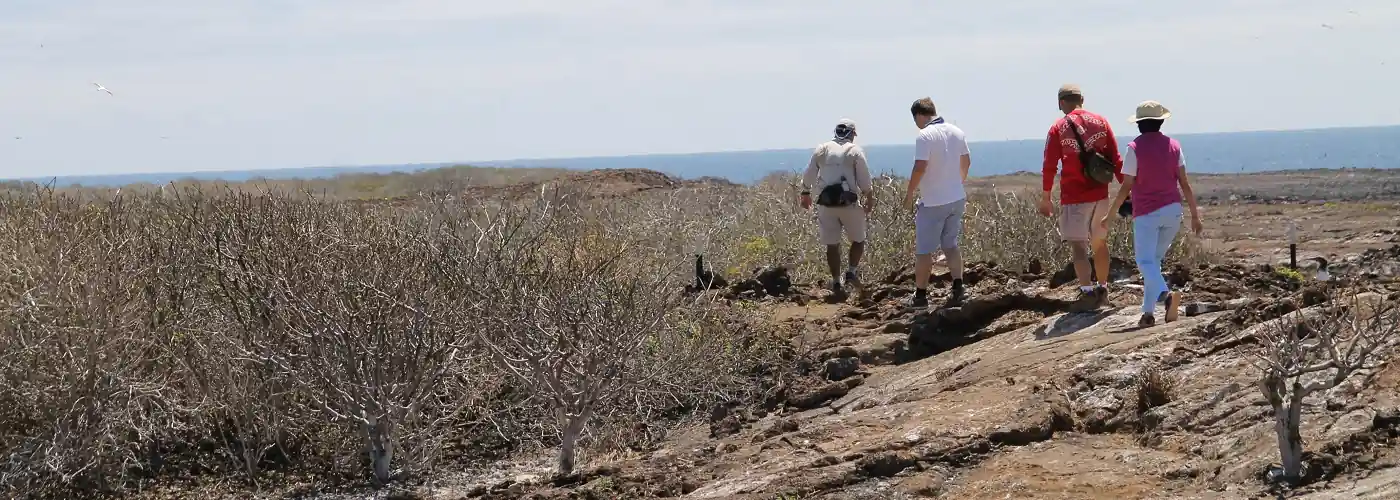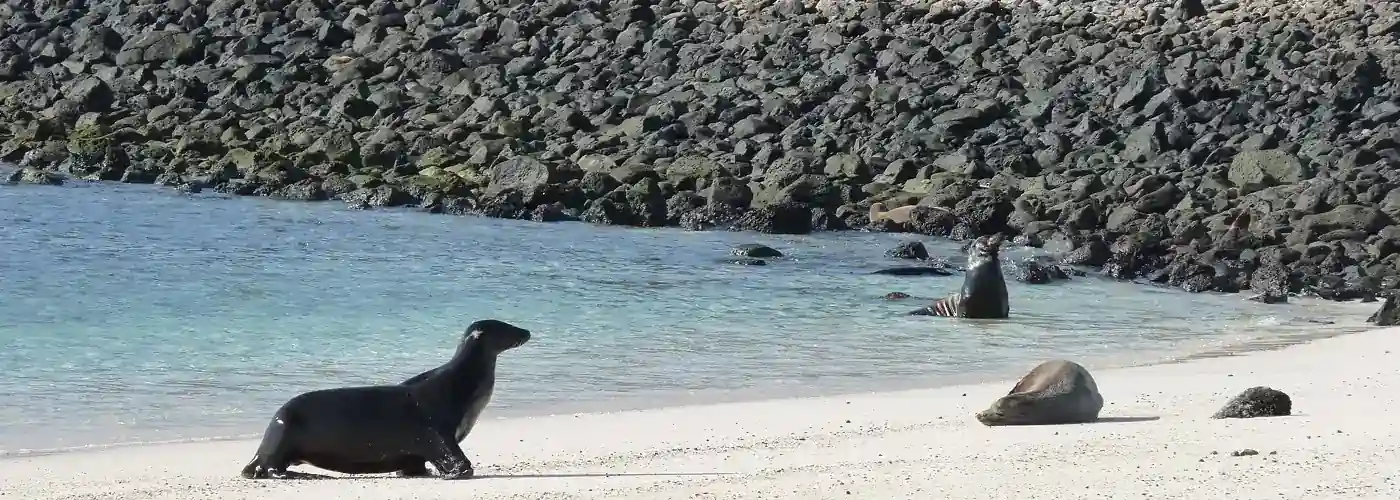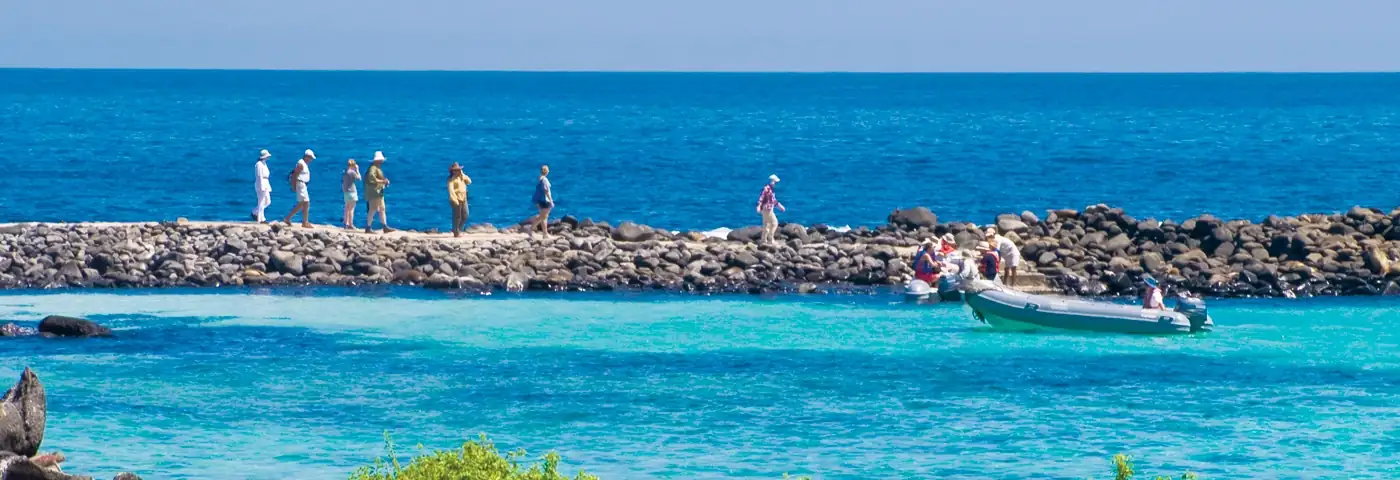8 days cruise catamaran Seaman Journey – C
Route C (Fri -Fri): Main Islands of the Galapagos Archipelago
- 8 days
- 1-16
Highlights of the tour
- Variety of marine birds
- Great snorkeling opportunities
- Flightless cormorants
- Beautiful beaches with playing sea lions
Overview
The catamaran Seaman Journey takes you on a varied cruise through the Galapagos archipelago. During 8 days you will explore the beauties of the Galapagos Islands. Marvel at the diverse flora and fauna and learn interesting facts about the history of these unique islands.
You are likely to see species such as flightless cormorants, sea lions at play and Galapagos giant tortoises.
Of course, there will also be plenty of time to relax, swim and snorkel, and you can really enjoy yourself aboard the catamaran.
Itinerary
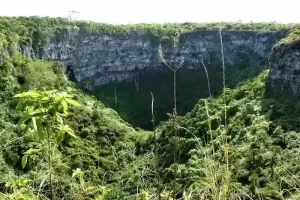
Afternoon – Highlands (Santa Cruz): You will visit the highlands of the island (so have your shoes and rain jacket ready). Observe giant tortoises in their natural habitat as well as a variety of native and migratory birds including tree finches, ground finches, Galapagos flycatchers and cattle egrets, often standing on the backs of tortoises. Lunch in the highlands. Then drive to Puerto Ayora, the capital of Santa Cruz and board the ship.
Meals: Lunch/Dinner
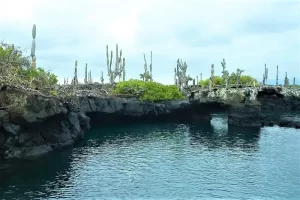
Afternoon – Moreno Point (Isabela): Punta Moreno is located between the Sierra Negra and Cerro Azul volcanoes, on the north coast of Isabela Island. The trail leads along the lava river Pahoehoe to a complex of several coastal lagoons. The main attraction are various species of birds that can be found at the lakes and in the mangrove forests.
Meals: Breakfast/Lunch/Dinner
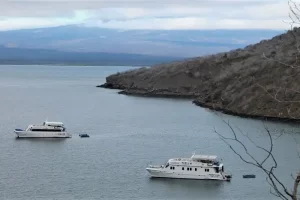
Afternoon – Tagus Cove (Isabela): You will navigate around Tagus Cove along the cliffs. From the rubber boat you have a good chance to see the Galápagos penguins, the flightless cormorants and other seabirds. From the dock it is about a 30-minute walk to the cliff top where you can see Lake Darwin. The lake contains more salt than the sea itself. You can also see some volcanoes from here. Look out for the graffiti on the surrounding cliffs of the bay! They were written by pirates and whalers in the last centuries.
Meals: Breakfast/Lunch/Dinner
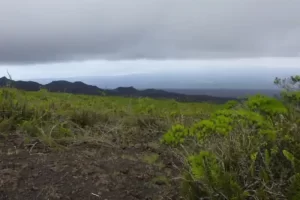
Afternoon – Vicente Roca Point (Isabela): During lunch you will cross the Bolivar Channel for the last time to reach Vicente Roca Point, at the mouth of the seahorse-like shape of Isabela Island. Entering a dark cave under a spectacular arch, the echoes of the waves will accompany you. Just around the corner, the collapsed amphitheater of the Ecuador volcano offers you another impressive view. The calm waters of the bay are well protected from the ocean waves. The water is quite cold, but an excellent place to snorkel among various species of sharks, penguins, puffer fish and seahorses.
Meals: Breakfast/Lunch/Dinner
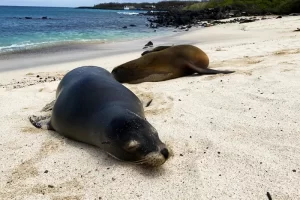
Afternoon – Puerto Egas: At noon you will navigate south to Puerto Egas, which is famous for its fur seal caves, where you will take a special guided walk along the coast. The masterfully sculpted coastline with black basalt and multicolored ash layers forms a photogenic scenery with collapsed lava tunnels, natural arches, caves and holes like “Darwin’s toilet”. In a grotto just below a spectacular stone arch at the end of the beach, a colony of sea lions cavorts in the shade. Hundreds of red cliff crabs glow bright orange on the pitch-black stones.
Meals: Breakfast/Lunch/Dinner
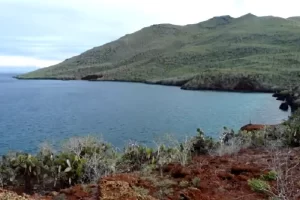
Afternoon – Chinese Hat: Chinese Hat is a 52 meter high volcanic cone that forms another small island out of the rocky coast of Santiago, where a small colony of Galapagos penguins has settled. Because its primordial fire went out quite recently, this place is perfect for learning about volcanism, lava bombs and lava tubes. On the beach you can also discover pillow lava with coral on top. This area was originally underwater before it was raised above sea level. Beaches of white coral sand grow and the holes in the eroding lava fields are filled in with lava sand. Galapagos sea lions and marine lizards contribute to the fertility of the soil. All together they create further beneficial options for pioneer plants such as saltbush and the coloring sesuvium carpet.
Meals: Breakfast/Lunch/Dinner
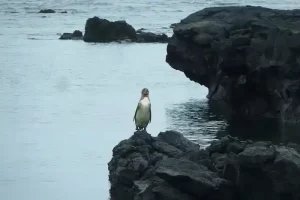
Afternoon – Bartolomé: Bartolomé Island reaches 114 meters high and towers across from Sullivan Bay. Climb the steps of the Bartolomé Summit Trail and be rewarded with panoramic views of volcanic peaks, moon-like craters and lava fields. The island has two stunning beaches, is home to sea turtles, and a very small colony of Galapagos penguins at the base of Pinnacle Rock.
Meals: Breakfast/Lunch/Dinner
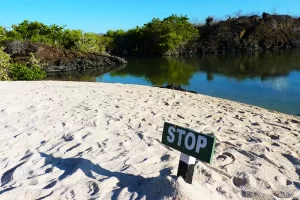
Meals: Breakfast
- Included services
- Accommodation on board in a cabin with private bathroom
- All meals, water, coffee and tea
- All excursions as indicated in the itinerary (subject to change) with bilingual naturalist guide (English-Spanish)
- Airport transfers in Galapagos (only guaranteed if the flight is booked together with the cruise)
- Snorkeling equipment (mask, fins and snorkel)
- Towels for bathroom and beach
- Not included services
- International flight and Galapagos flight
- Entrance fee to Galapagos National Park (USD 200 per person, children under the age of 12 USD 100)
- Transit control card (USD 20 per person, subject to change)
- Airport transfers in Galapagos (if the flight is not booked together with the cruise)
- Wetsuit
- Soft and alcoholic drinks
- Tips
- Travel insurance and other personal expenses
Hints
Ask us for children or group discount.
Price not valid for Christmas and New Years´s Eve departures.
All prices are subject to change if local tax increases or other circumstances beyond our control occur.
The itinerary is subject to change at any time due to circumstances beyond our control.
In order to rent a wetsuit, we will need your clothing size (S/M/L/XL) before your arrival in Galapagos. Standard wetsuits with a thickness of 3 mm are rented.
Travel Insurance:
To protect your travel investment, we highly recommend the purchase of travel insurance. Travel insurance is intended to cover medical expenses, trip interruption and cancellation, theft and other losses incurred while traveling domestically or internationally.
Visa and Entry Requirements:
Ecuador requires a valid passport (with a minimum 6 months validity). Contact your local embassy or consulate for the most up-to-date visa requirements.
8 days cruise catamaran Seaman Journey – C
From US$ 4290 p.p.
Get in touch:

Dayana Arias Leon
- +593 (0)2 2194333
- hello@soleq.travel
Other interesting cruises
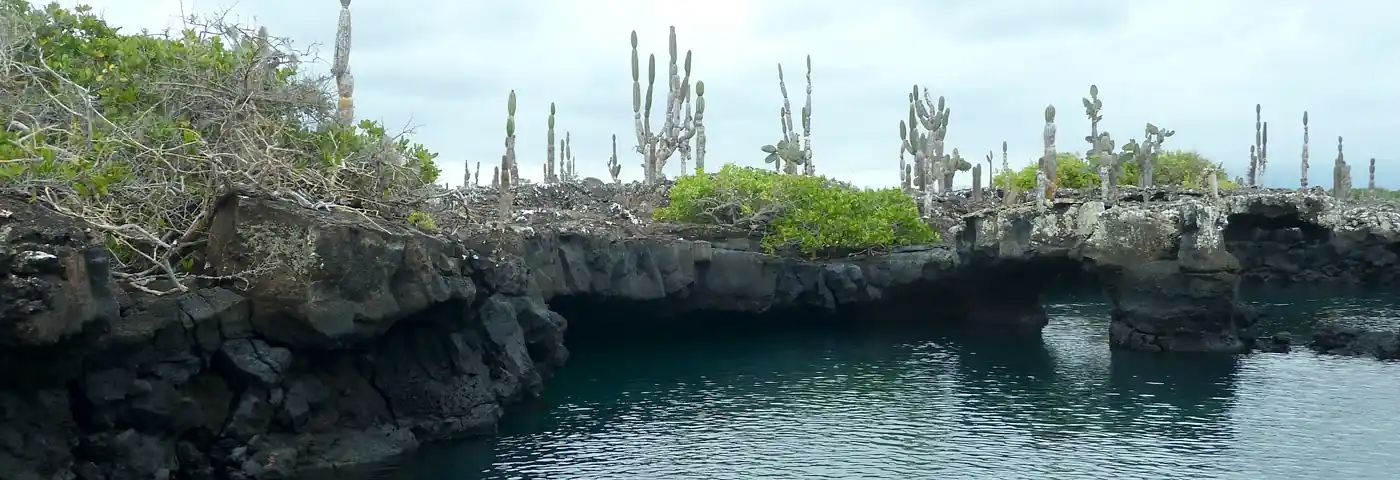
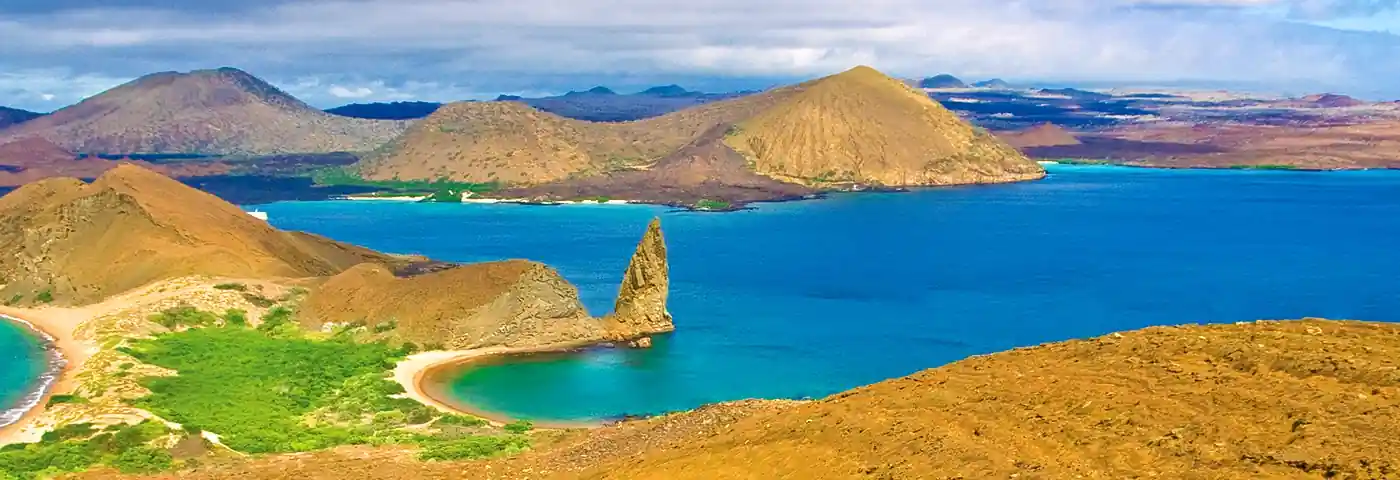
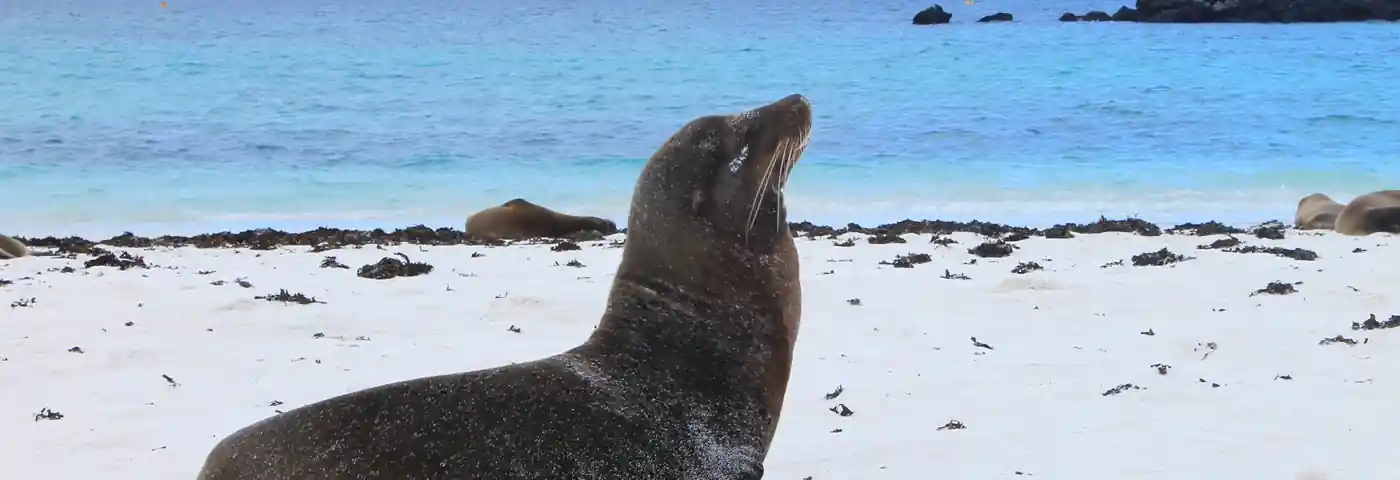
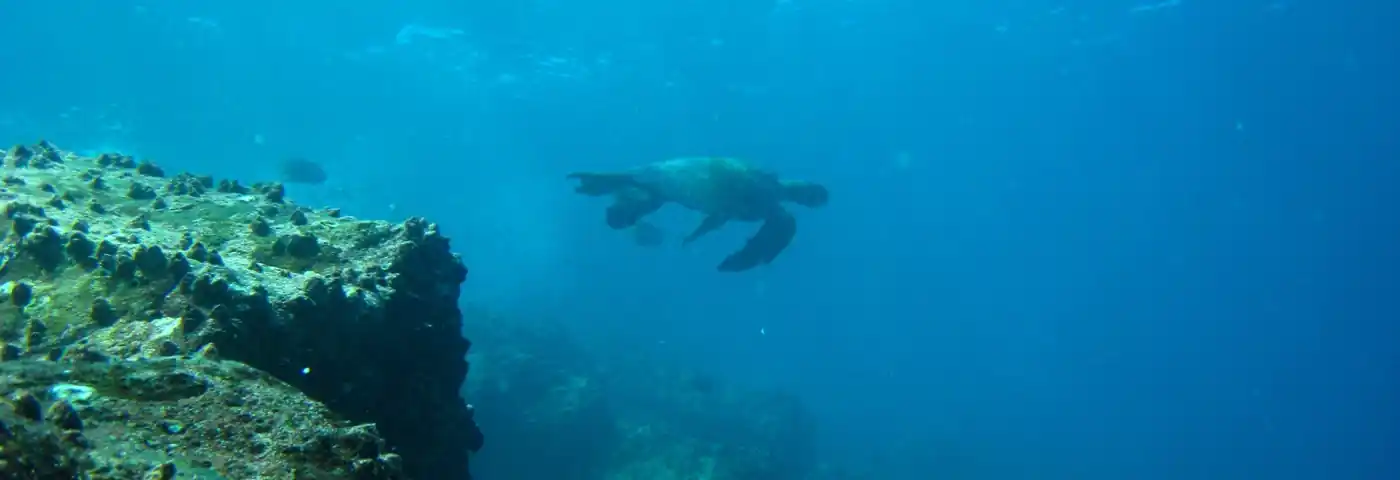

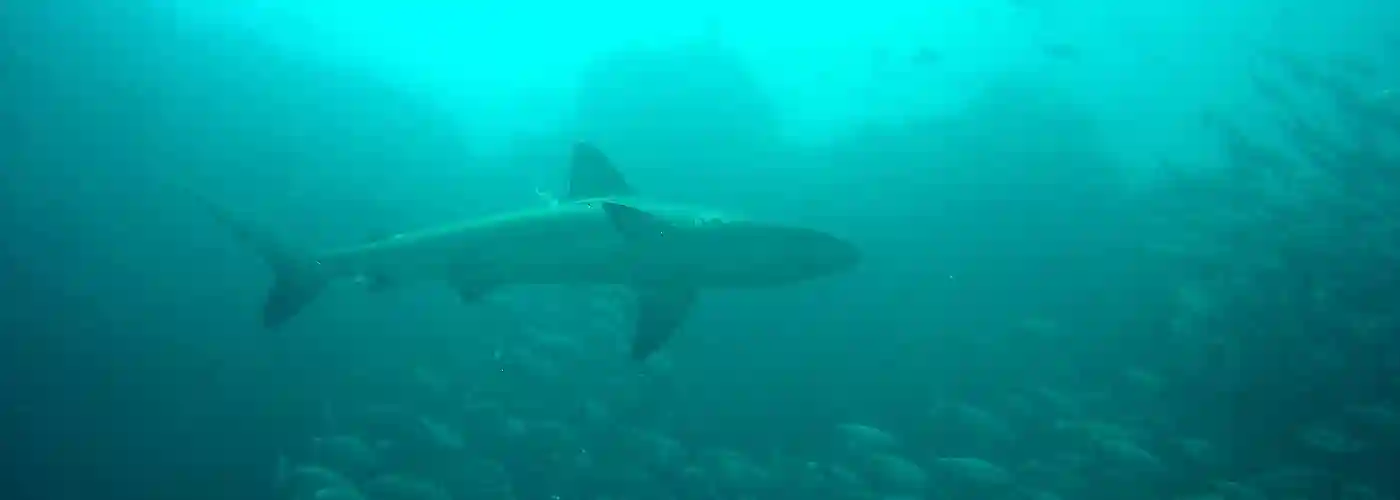
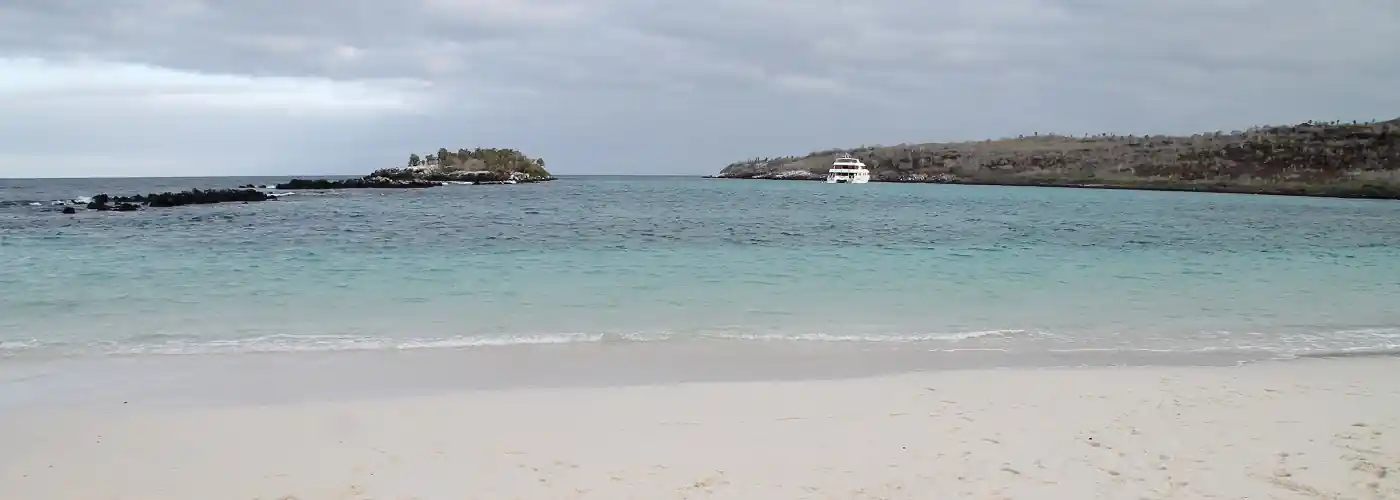
- 8 days
